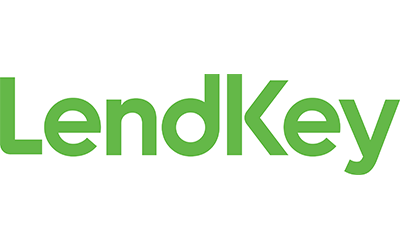Paying too much on your student loans? Refinancing could lower your interest rate, reduce your monthly payments, and help you pay off debt faster. But with so many lenders out there, it’s hard to know which one to trust.
That’s why we’ve rounded up the best student loan refinance companies of July 2025. Whether you’re looking for lower rates, flexible repayment terms, or a lender that works with less-than-perfect credit, this guide can help you find the right fit.
If your credit score has improved or interest rates have dropped since you first borrowed, now might be the perfect time to refinance and save.
7 Best Student Loan Refinance Companies
We’ve reviewed the top refinance lenders to help you compare your options. Explore the list below to see which one best matches your financial goals—and then take the next step toward better loan terms.
1. Earnest
- Loan amounts: $5,000 to $500,000
- Credit score needed: 665+
- Available term lengths: 5 to 20 years (customizable down to the month)
2. LendKey
- Loan amounts: $5,000 to $125,000 (undergraduate), up to $300,000 (graduate)
- Credit score needed: 680+
- Available term lengths: 5, 7, 10, 15, or 20 years
3. SoFi
- Loan amounts: $5,000 up to your full outstanding loan balance
- Credit score needed: 650+
- Available term lengths: 5, 7, 10, 15, or 20 years
4. Education Loan Finance (ELFi)
- Loan amounts: $10,000 and up (no maximum limit)
- Credit score needed: 680+
- Available term lengths: 5, 7, 10, 15, or 20 years
5. Citizens Bank
- Loan amounts: $10,000 to $300,000 (bachelor’s), up to $500,000 (graduate), and up to $750,000 (professional degrees)
- Credit score needed: Not disclosed (strong credit recommended)
- Available term lengths: 5, 7, 10, 15, or 20 years
6. RISLA
- Loan amounts: $7,500 to $250,000
- Credit score needed: 680+
- Available term lengths: 5, 10, or 15 years
7. MEFA
- Loan amounts: $10,000 and up (no maximum limit)
- Credit score needed: 670+
- Available term lengths: 7, 10, or 15 years
How to Compare Student Loan Refinance Lenders
Not all student loan refinance lenders are the same. To get the best deal, you need to compare offers carefully and look beyond just the interest rate. These tips will help you make a smarter choice.
Compare Interest Rates and Fees
Look at both fixed and variable interest rates from multiple lenders. Check for hidden fees like origination or prepayment penalties. Some lenders offer discounts for enrolling in autopay—factor those in when comparing offers.
Review Repayment Terms
Choose a term that fits your budget and financial goals. A shorter term will cost less in interest overall but comes with higher monthly payments. A longer term reduces your payment but increases total interest paid.
Check Cosigner Policies
If you need a cosigner, make sure the lender allows it and offers a cosigner release. Most require 12 to 36 months of on-time payments before the cosigner can be removed from the loan.
Look at Credit and Income Requirements
Most lenders require a credit score in the mid-600s or higher and proof of stable income. If your credit score is low or your income is inconsistent, focus on lenders with more flexible criteria.
Consider Borrower Benefits
Some lenders offer extras like career coaching, unemployment protection, or deferment options. These benefits can provide peace of mind if your situation changes after refinancing.
Read Customer Reviews
See what other borrowers are saying. Reviews can give you a quick sense of how the lender handles customer service, application processing, and problem resolution.
Read the Fine Print
Before you sign, go over the full loan terms. Check how interest is applied, what happens if you miss a payment, and whether the lender can change your rate later on.

When is the right time to refinance student loans?
Refinancing can help you save money, reduce stress, or simplify your payments—but only if the timing makes sense. Here are the signs that you’re in a good spot to move forward:
Your Credit Score Has Improved
If your credit score is significantly higher than when you took out your original loans, you’ll likely qualify for a lower interest rate. That means smaller monthly payments and less paid over time.
Interest Rates Have Dropped
Market rates may have fallen since you first borrowed. Refinancing now can help you lock in those lower rates—especially if you want the stability of a fixed-rate loan.
You Want to Consolidate Multiple Loans
Refinancing lets you combine multiple student loans into one. Instead of juggling several due dates and rates, you’ll have just one loan and one monthly payment.
You Need Lower Monthly Payments
Extending your repayment term through refinancing can reduce your monthly bill. You may pay more interest overall, but it can make cash flow easier in the short term.
When You Shouldn’t Refinance Your Student Loans
There are real downsides to refinancing, especially if you have federal student loans. Here’s when you should avoid it:
You Have Federal Loans and Rely on Income-Driven Repayment
Private lenders don’t offer payment plans based on income. If you refinance, you lose access to this safety net.
You’re Pursuing Loan Forgiveness
Programs like Public Service Loan Forgiveness and Teacher Loan Forgiveness only apply to federal loans. Refinancing into a private loan makes you ineligible.
You’re in a Financially Unstable Situation
If your income is unreliable or your job feels shaky, refinancing is risky. You’ll lose access to deferment and forbearance protections offered by federal loans.
What You Need to Qualify for Student Loan Refinancing
Lenders don’t approve just anyone. Here’s what they’re looking for:
- Minimum credit score: Most lenders require a score between 650 and 680. The higher your score, the better your rate.
- Stable income: You need to show you can afford the payments. That usually means a steady job or reliable self-employment income.
- College degree: Many lenders require that you’ve graduated. A few may offer exceptions, but they’re rare.
- Clean payment history: If you’ve missed payments in the past, it could hurt your chances.
- Cosigner option: If your credit or income is borderline, you may need a cosigner to qualify or to access lower rates.
What Happens When You Refinance a Student Loan?
The refinancing process is straightforward, but it helps to know what to expect:
- Apply with a lender: You’ll fill out an application that includes your income, credit, and loan details.
- Get a credit check: The lender will pull your credit report to determine your eligibility and rates.
- Review your offer: If approved, you’ll receive a loan offer outlining the new terms, interest rate, and monthly payment.
- Pay off your old loans: If you accept, the new lender pays off your old student loans.
- Start repaying the new loan: You’ll begin making payments under the new terms, usually within 30 to 60 days.
Refinancing may give your credit score a slight bump over time, especially if it improves your payment history and credit mix. Just make sure to compare the full loan terms before signing.
Final Thoughts
Refinancing can save you money, lower your monthly payments, or make life simpler—but it’s not for everyone. If you have stable income, a solid credit score, and don’t rely on federal loan benefits, it’s probably worth exploring.
Compare offers from multiple lenders, weigh the trade-offs, and choose the one that aligns with your financial goals—not just the one with the flashiest rate.
Frequently Asked Questions
Can I refinance student loans more than once?
Yes, you can refinance your student loans as many times as you’d like—as long as you still qualify. Some borrowers refinance more than once to get a better rate, switch lenders, or change their repayment terms as their financial situation improves.
Does refinancing affect my credit score?
Refinancing typically results in a small, temporary dip in your credit score due to the hard credit inquiry. However, over time, it can help your credit by reducing your debt-to-income ratio and improving your payment history if you make on-time payments.
Is there a penalty for paying off a refinanced student loan early?
No, most private lenders do not charge prepayment penalties. You can pay extra toward your refinanced student loan—or pay it off entirely—at any time without facing fees.
Can I refinance just one of my student loans instead of all of them?
Yes, you can choose to refinance one loan or a portion of your total student loan debt. You don’t have to include all your loans in the refinancing process.
Do I need to refinance with the same lender that gave me the original loan?
No, you can refinance your student loans with any lender that offers terms you like and for which you qualify. You’re not required to stick with your original loan servicer.










